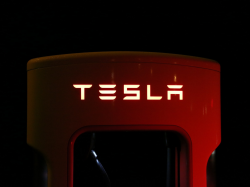
— A Tesla battery update investigation petition has been shot down by the National Highway Traffic Safety Administration (NHTSA).
The petition was filed in September 2019 by lawyer Edward Chen who has filed several class action lawsuits against Tesla on behalf of Tesla owners.
Mr. Chen petitioned NHTSA to open a defect investigation of 2012-2019 Tesla Model S and Model X vehicles that received over-the-air battery management updates beginning in May 2019.
The petitioner alleges the battery updates were issued in response to Tesla battery fires, but the updates allegedly decreased the range of the vehicles. The updates also allegedly increased the time necessary to charge the Tesla vehicles.
Tesla told safety regulators a battery update may limit the maximum voltage in vehicles with Supercharging histories which contributes to high usage stress to the batteries. Out of nearly 62,000 Tesla vehicles, the voltage limiting update has been enabled in about 2,000 vehicles.
NHTSA says 52 customer complaints were filed related to alleged battery capacity reductions and seven complaints allege the charging speeds changed. Out of the 52 complaints about an alleged loss of battery range, 30 of those vehicles had received the battery updates.
According to NHTSA, later Tesla battery updates restored all or some of the battery capacity, and none of the vehicles mentioned in the complaints ever suffered from any fire-related incidents.
Part of the defect petition references five non-crash fires, including two fires that occurred in China in early 2019, and three fires outside China which didn't involve the same facts regarding the battery charging histories.
Two of those fires occurred in the U.S., but NHTSA found one of the Tesla vehicles had no Supercharging history. And the other Tesla vehicle that caught fire had nothing to do with the high-voltage battery.
NHTSA says it is denying the petition to investigate the Tesla vehicles because the evidence doesn't indicate a safety issue with the vehicles or the battery updates.
"Given the absence of any incidents in the United States related to fast charging, and the absence of any such incidents globally since May 2019, it is unlikely that an order concerning the notification and remedy of a safety-related defect would be issued due to any investigation opened as a result of granting this petition." — NHTSA




